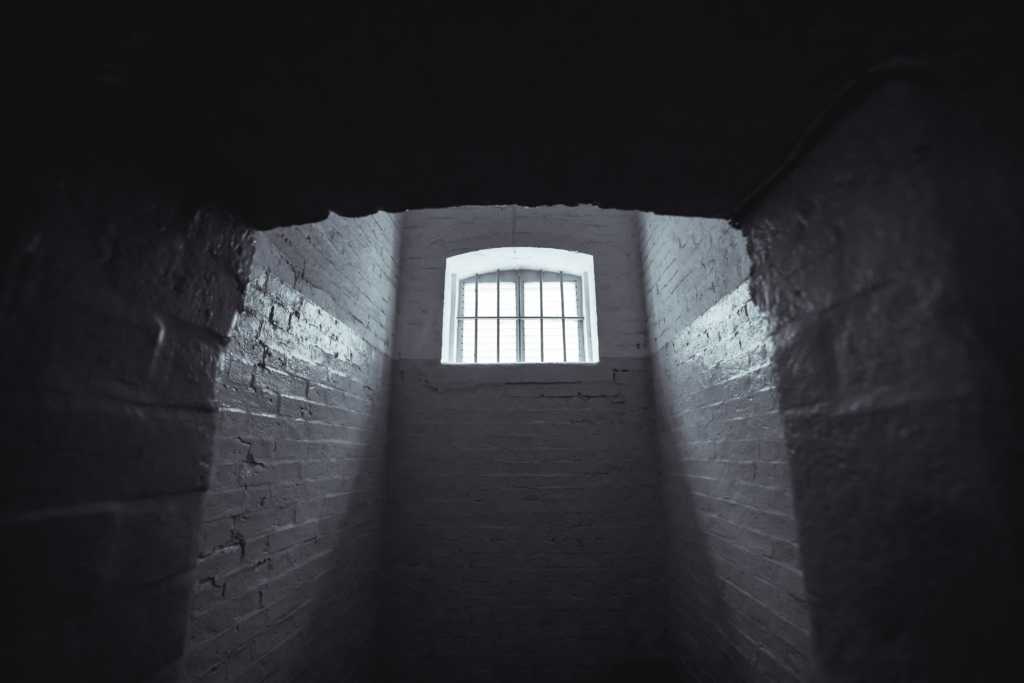On a recent trip to the largest maximum-security prison in the United States, NFL wide receiver Torrey Smith learned a lesson about forgiveness that he will never forget.
The Panthers wide receiver was so moved by his experience at the prison that he wrote about it for The Undefeated.
Smith shared that a former teammate of his, Steve Smith Sr., had reached out a few months ago and invited him to participate in a prison ministry with him.
“I know everyone has their own things going on, but I told myself I wouldn’t be silent and keep it to myself,” Smith Sr. wrote to him. “So I’m just doing what was placed on my heart. Pray about it. If what you read interests you hit me back. If it doesn’t I completely understand.”
Torrey Smith, who had visited various prisons before, responded immediately to let his friend know he would join him to visit Louisiana State Penitentiary.
The trip to the largest maximum-security prison in the U.S. turned out to be “an emotional journey” for Smith that challenged his “assumptions about rehabilitation and forgiveness.”
“Spending time with the people at [Louisiana State Penitentiary] led me to question my own views of forgiveness,” Smith wrote. “As a follower of Christ, I believe that we are forgiven. But I had to ask myself, ‘Am I really forgiving others? If my forgiveness is conditional, is it real?'”
The trip to the prison was lead by Len Vanden Bos, the team chaplain for the Buffalo Bills, and Smith’s own chaplain at Pro Athletes Outreach, “an organization that builds community among pro athletes and couples to grow spiritually and have a positive impact around them.”
The Louisiana State Penitentiary, most commonly known as “Angola” is named after the slave plantation that it sits on. During the 1800s it was known for loaning out prisoners to plantations as workers, and is notorious for being “the bloodiest prison in America.”
History of historical growth in Angola
In 1995, Burl Cain became the warden of Angola, with the mission to radically change the prison. Cain worked to distance the prison from its violent reputation and began plans for a satellite campus with the New Orleans Baptist Theological Seminary. These were just his first steps in helping the prison, but the efforts can be seen today, as witnessed first-hand by Smith.
“As we passed a church on the property that was built by the men, for example, I was struck by what they had accomplished — and what it demonstrated,” Smith recalled. “I saw two incarcerated men working on a building with all of the tools they needed: hammers, nails, screwdrivers, screws, it was all there. It was a striking visual that remains stamped in my memory. Although I strongly believed that it was wrong that they were working for pennies on the dollar, their ability to do so conveyed a sense of collaboration and responsibility that led me to also believe they had hope.”
Smith commended the workers on their efforts and was blown away at the ability for murderers, rapists and other criminals to live together in what appeared to be a peaceful community.
“I witnessed how people accused of even the most serious crimes and living in extremely difficult conditions could work, live together peacefully and change,” he wrote. “I wondered if those people working so well together were really still even a danger to anyone. This experience drove home the importance of second chances, because people change, even those who have caused terrible harm.”
The wide receiver pointed out that although he knows prison reform is a complicated issue, he believes that there is immense work to be done in America’s pirsons.
“Many men and women who deserve second chances remain in prison because of politics or because they are considered a high-profile case in their state,” he wrote. “It’s not fair to the incarcerated men and women or the bodies that govern them.”
Smith also pointed out that many of the men who had found Christ in the prison also found lasting peace:
“Many of the men at Angola had already found peace through Christ, which allowed them to feel forgiven. As I prayed with them at the end of our visit, worshipping alongside men who had committed violent crimes and were now paying their debt to society, I witnessed the power of real forgiveness.”
“It was a lesson that I carried with me when I left, and it is a lesson that I will share with the hope that others can accept and give forgiveness too,” he concluded.



